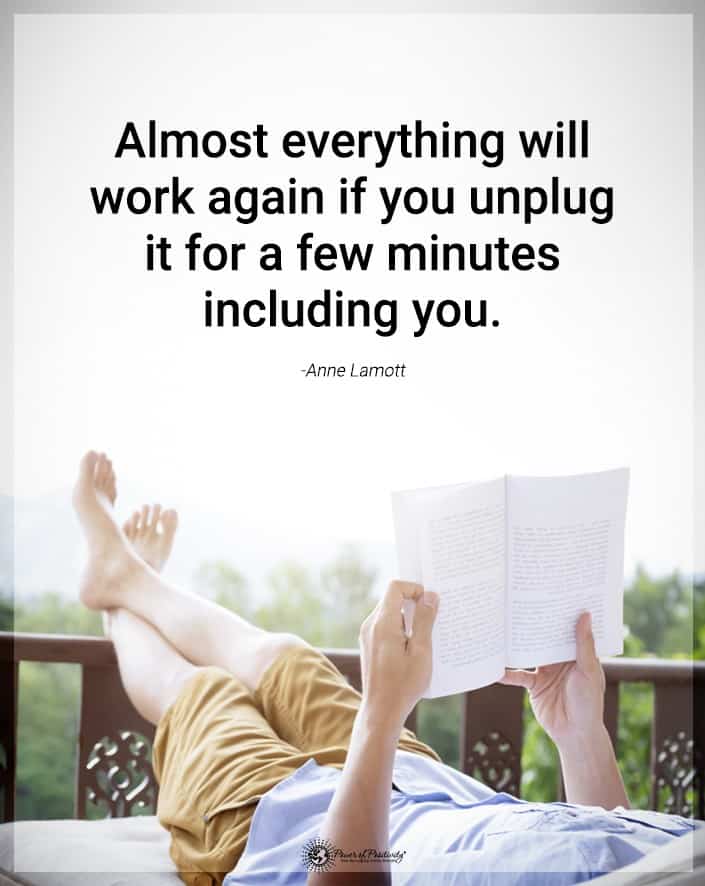Words play a role in mastering your emotions because they help name, define, and categorize your feelings. When you can think of your feelings this way, you’ll improve your emotional intelligence and get a better handle on it.
Neuroscientist Lisa Feldman Barrett teaches us that emotions aren’t the defining factor of who we are. She believes that emotions connect to survival instincts and the desire to survive and thrive. These instincts cause us to try and predict the future, creating certain emotions regarding the situation.
Learning to master your emotions can help you react to feelings objectively. With objectivity, you can make decisions based on detailed emotional evaluations. You’ll also figure out when to respond to your emotions or disregard them until you feel normal again.
Barrett suggests easy methods for mastering your emotions, helping you learn everything you need to know. She explains that you should learn to process and categorize how you’re feeling, digging deeper to understand. Once you learn the two methods, you’ll be well on your way to mastery.
Two Easy Methods Can Help Master Your Emotions
Try these techniques when you need to regain mastery of your feelings.
1 – Master Your Emotions by Practicing Emotional Granularity
Barrett’s first method for mastering your emotions is to practice emotional granularity. Your emotional granularity is your ability to make your feelings diverse and specific. The higher your emotional granularity, the better your mental and physical well-being are protected.
Practicing emotional granularity requires learning new things. You don’t only have to read or listen to self-help content as you can find descriptive words in any context. The goal is to read or listen to thought-proving content that uses specific terms to describe feelings.
Another way to practice emotional granularity is to learn the differences between similar words. You might know that there is a subtle difference but wouldn’t know how to pinpoint it when you experience it. When you learn the differences between emotional words, you will be well on your way to mastering your emotions.
Even when you’ve learned many new ways to describe your emotions, you can continue learning more. You can boost your emotional granularity by researching words in other languages that could apply to the way you feel right now. When you look for new comments this way, you can reconstruct your experiences.
When you only know a couple of ways to describe how you feel, it indicates that you need to gain emotional intelligence. By learning new words, you can give your brain more options for predicting and perceiving emotions.
Your goal when practicing emotional granularity should be to gain new concepts and hone the skills you already have. Emotionally intelligent people know which skills to use in each situation. Even when they initially aren’t sure what to do, they’ll use their concepts to figure it out.
Practice No Matter Where You Are
You can put your new skills to the test no matter where you are. Start by closing your eyes and imagining yourself in a different situation, and try to come up with concepts to describe it. Use multiple words and combine the emotions.
When you do this mental exercise, it helps you learn to use the new words in a meaningful way. It also allows you to cope with unpredictable circumstances and encourage empathy towards others. This method can also help with negotiating conflict and getting along with others.
The Benefits of Emotional Granularity
Granularity has many benefits that create a satisfying and fulfilling life. Studies show that people who could specify their feelings regulated their emotions better. They are also less likely to drink too much when they get stressed.
Plus, people that practice emotional granularity are less likely to retaliate against someone who wronged them. They have better relationships with their friends and loved ones and usually act more appropriately in social situations.
Another benefit is that emotional granularity helps you alleviate your issue. If you can pinpoint your specific emotion, you can address why you feel that way. Then, you can come up with a solution that eliminates the trigger.
Emotional granularity doesn’t only help with your emotions and mental health either. Studies show that people with higher granularity visit the doctor less frequently, use less medication, and aren’t hospitalized for illness as often.
2 – Master Your Emotions by Recategorizing Your Feelings
Once you’ve learned new ways to describe how you feel, you should recategorize your feelings. The different words can help you understand your sensations, allowing for better decisions. Without emotional granularity, you can’t successfully describe your emotions and categorize them.
When you can clearly identify your feelings and recategorize them appropriately, you can reduce suffering in your life. Recategorizing helps free you from believing that emotions are hardwired in your brain or automatically triggered. Instead, your feelings come from your brain working to help you survive and do well in life.
Your brain constantly predicts things, causing emotions to encourage certain decisions. Once you’ve learned more words to help with categorization, your brain will automatically label them precisely. Then, you’ll know whether to take action or not and what action needs to happen.
Instead of using broad terms to describe your emotions, focus on being more precise. Replace words like “awesome” or “great” with words that better convey how you feel. Some better words that describe positive emotions include these:
- Inspired
- Hopeful
- Blissful
- Joyful
- Thrilled
- Relaxed
- Happy
- Content
- Prideful
- Adoring
- Grateful
When you come up with words that better describe your feelings, it helps you process and recategorize them. The same concept is genuine regarding negative emotions because saying “bad” is extremely broad. Consider some of these words, instead:
- Resentful
- Dread
- Angry
- Irritated
- Embarrassed
- Guilty
- Gloomy
- Depressed
- Anxious
- Aggravated
- Alarmed
- Spiteful
- Remorseful
- Mortified
- Uneasy
Benefits of Recategorization
Recategorizing your emotions can help you overcome fear and feel less anxious about things that often trigger you. Rather than using one word to describe a situation, object, or experience, go into detail. Use multiple descriptive words to convey your exact emotions and thoughts.
When you feel anxious or worried about something, you can use recategorization to turn it into something positive. You can assess if your anxiety is due to excitement at the opportunity or something else and recategorize the emotion accordingly. Learning to do this in all instances can help you focus on benefits and positive aspects.
Other Ways to Master Your Emotions
Get Moving
One of the easiest ways to mater your emotions is by staying active. You can find balance in your life and mind by moving your body regularly. Go for a walk outside in nature to decrease negative feelings and improve your overall well-being.
Read a Book
Reading a book can help you step away from your emotions for a little while. Don’t avoid them, but taking a break from thinking about them can help you refocus your thoughts. Plus, as you read, you’ll learn new words, improving your emotional granularity.
Master Your Emotions Through Meditation
Practicing meditation allows you to observe and experience emotions, and it helps you release them. Meditation also allows you to clear your thoughts while relaxing your mind and body. Afterward, you’ll have an easier time processing the way you feel right now.
Write Down Positive Experiences
Keeping track of positive experiences can help you master your emotions. When you direct your attention to something, you’ll experience more of it. By focusing on and keeping track of positivity, you’ll see more of it in the world around you.
Anytime you experience something you want to happen again in the future, keep track of it. If you aren’t a fan of writing it down, find another way to commemorate the experience. One option is to take photos of something that reminds you of the experience.
Always Find the Good
It’s easy to get caught up in the negativity of a situation when it doesn’t go as planned. However, doing so can hinder your emotional progress. Instead, even when you aren’t thrilled, look for the good in every situation.
By forcing yourself to look for the positive aspects, you can change how you feel about it. You’ll end up feeling appreciative, grateful, or excited for another chance to try again. It helps you cherish each moment of your life, allowing you to see things clearly and gain emotional granularity.
Communicate Your Needs and Desires to Help Master Your Emotions
When you can open up and communicate what you need and want, you’ll start to master your emotions. Poor communication leads to misunderstandings and conflict, resulting in emotional turmoil. As you learn to communicate with others in this way, you’ll gain emotional granularity.
Final Thoughts on These Two Easy Methods Can Help Master Your Emotions
Using these two methods to help master your emotions can make all the difference in your life. As you learn to practice emotional granularity, you’ll find new ways to describe how you feel. Plus, you’ll start to use multiple words to convey your emotions.
This concept is one that you can practice throughout your life. You can never learn too much, and there is always more information out there. Keep learning and implementing your knowledge to help master your emotions.

















 Community
Community

